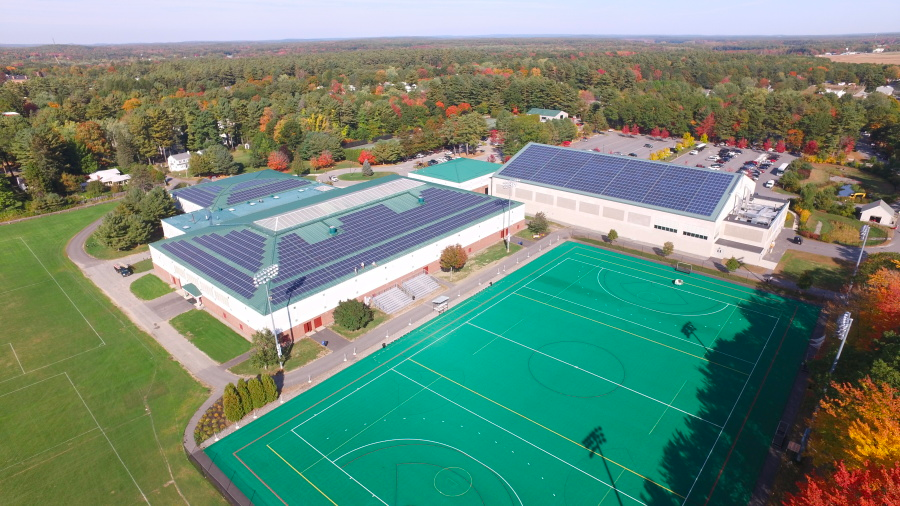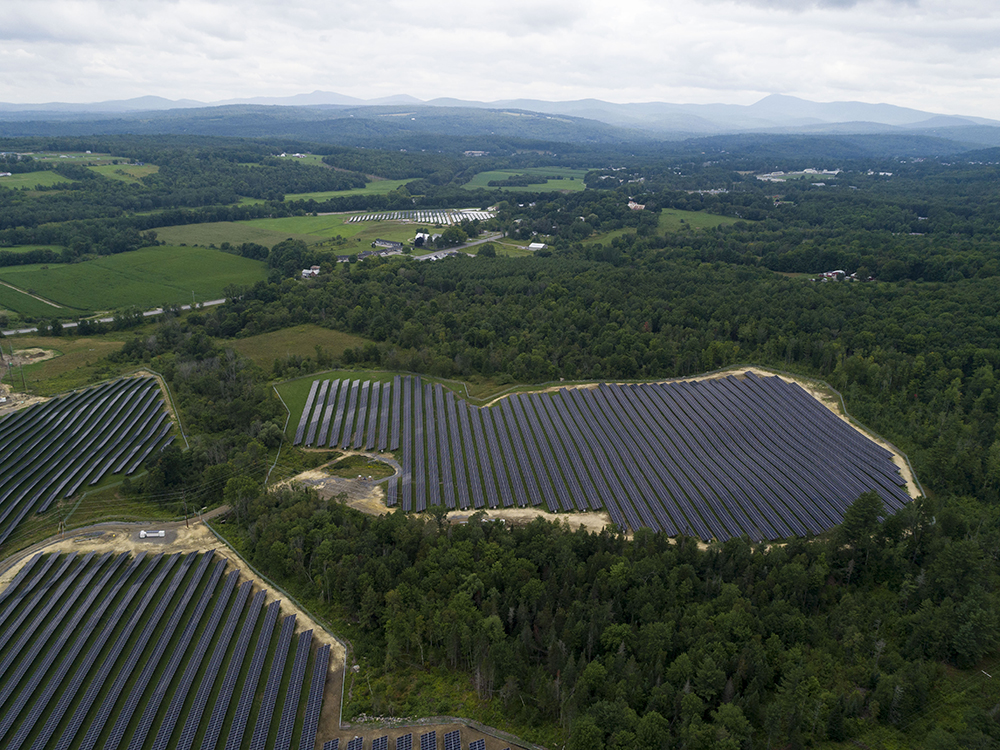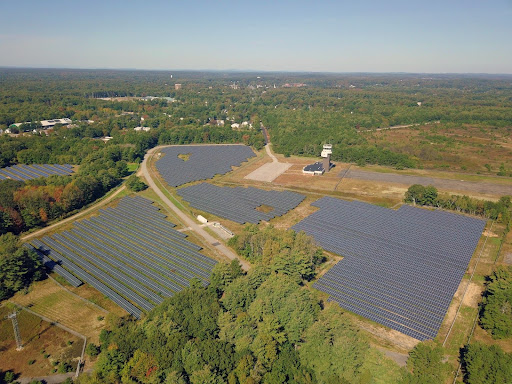Energy Efficiency
Bowdoin has taken several significant steps to increase energy efficiency including rebuilding several steam lines, upgrading major boilers in the campus central steam plant, installing energy-efficient lighting throughout the campus, incorporating heat recovery and variable frequency drives in building upgrades and new building projects with a strong focus on LEED Energy and Atmosphere credits as well as passive house standards. Lighting projects in 2014 reduced annual electricity usage by more than 600,000 kWhs or 3.2%. The Combined Heat and Power (CHP) project at the College’s central heating plant reduced annual electricity usage by 7% through the operation of an efficient steam turbine. Weatherization projects in 2017 and 2018, which include added insulation and air sealing, occurred at Baxter House, Burnett House, and MacMillan House. Bowdoin has paid for many of these projects through an energy efficiency fund and with help from the Efficiency Maine Trust. Bowdoin has been a smart purchaser of utilities by locking in favorable natural gas, heating oil, and electricity rates. These savings, along with savings related to decreased energy use, have been reinvested into further energy efficiency projects.
Energy Monitoring, Energy Conservation and Behavior Change
Bowdoin measures its energy use through an energy dashboard and solar PV metering of its facilities. This valuable data is available to faculty, staff and students alike to measure the College’s progress in reducing its carbon footprint. Believing in the adage, “What gets measured gets managed”, Bowdoin has electric meters in over 50 campus buildings and steam meters in over 30 campus buildings. The data is utilized to confirm the success of energy efficiency projects as well determine which buildings are the worst performers and help prioritize future upgrades and repairs.
The energy dashboard is also used as a tool in Bowdoin’s annual energy conservation dorm competitions. The competitions are a fun way to engage students in energy conservation and hopefully lead to life long habits in energy conservation. From remembering to shut lights and TV’s off when leaving a room, to considering the stairs over the elevator when able, the real-time competitions are a reminder that there is a consequence every time we flip the switch.
Energy Saving Tips
- Turn off computers when not in use.
- Turn off lights in bedrooms, bathrooms, hallways, classrooms, and common areas when you leave.
- Unplug chargers/appliances when not in use; they can use up to 25% of their energy just by being plugged in!
- Take the stairs instead of the elevator.
- Use energy-efficient LED light bulbs. LED lights are better for the environment than traditional incandescent bulbs because they use 75-90% less energy, reducing emissions associated with electricity generation. LEDs can last as long as 20 years. You can receive free LED light bulbs from the Sustainability Office at sustainability@bowdoin.edu.
- Monitor electricity use on campus with Bowdoin's Building Dashboard, which displays real-time electricity use in 40+ buildings.
- Study in common areas to share light!
- Air dry clothes. Loan a drying rack from the Sustainability Office or find one located in the laundry room of your dorm building.
- Buy Energy Star appliances. This certification is awarded by the EPA to products that use less energy, save money, and are better for the environment. Mini-refrigerators can account for roughly 65 percent of the energy use in a dorm room since they run 24 hours a day! If you plan on buying a mini-fridge for your room, visit the Energy Star website for a sortable listing of mini-fridges that receive the Energy Star rating.
- Email Facilities with heating and cooling issues, or call them at x3333.


